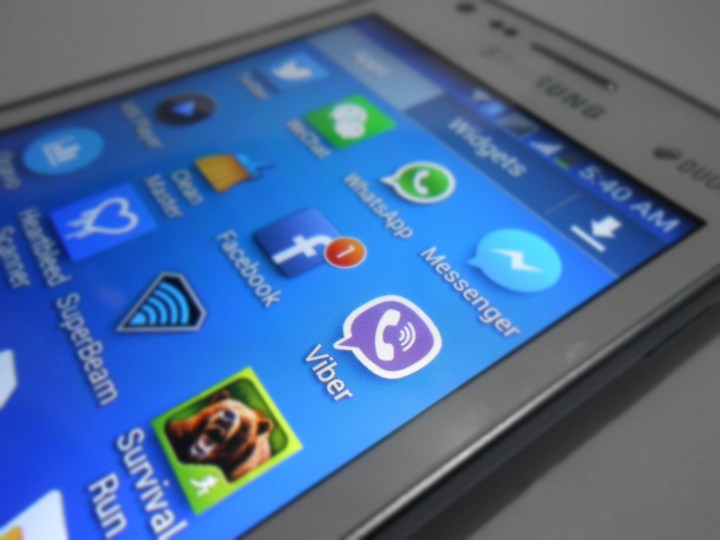
Viber may not have a billion users, but it’s getting close, with more than 711 million people using the service around the world. Viber was acquired by Rakuten in 2014.
Now you can securely message someone on the service without having to worry if your conversation is being intercepted by a third-party — and this works in a one-to-one or group message and with calls, on desktop, phones, or tablets.
Once you get the update, you’ll see a a gray padlock that says you’re secure. You can then manually authenticate your friends, which would make them “trusted” and turn their padlock green. A red padlock means either the person changed their primary phone, or it can “indicate a man-in-the-middle-attack.” You’ll have to “re-trust” the person in order to continue messaging them securely.
“Additionally, we’ve ensured each user has an individual cryptography key associated with his or her device, allowing you to benefit from an added layer of security,” says Michael Shmilov, Viber’s chief operating officer, in a blog post announcement.
There’s more than end-to-end encryption in the most recent update, though. Viber has also added a new feature called Hidden Chats, which allows you to hide chats from their main screen. If anyone takes your phone and opens the Viber app, for example, naturally they won’t see the conversations you hid.
And Viber says its enhanced message deleting feature, which is already available in the app, gives people more control over their private conversations. It essentially allows you to delete a message in a conversation, which will make it disappear from the other user’s conversation as well.

Viber’s move to add more security comes after a wave of companies, like its competitor WhatsApp, are ramping up their encrypted services in the midst of an ongoing war between Apple and the Department of Justice. Law enforcement have trouble getting access into criminal’s phones, as more and more of them are encrypted by default.
The U.S. government and local law enforcement have been pushing for anti-encryption legislation, but an overwhelming amount of tech companies, law, cyber security and cryptology experts disagree and say that weakening encryption would only threaten the security and privacy of the public.
The update is rolling out globally over the next two weeks.
Editors' Recommendations
- Meta’s ChatGPT killer is taking over your favorite apps
- What is WhatsApp? How to use the app, tips, tricks, and more
- Facebook Messenger finally starts testing end-to-end encryption for all chats
- WhatsApp now lets you control who can see your profile
- You can finally move your WhatsApp chats from Android to iOS



